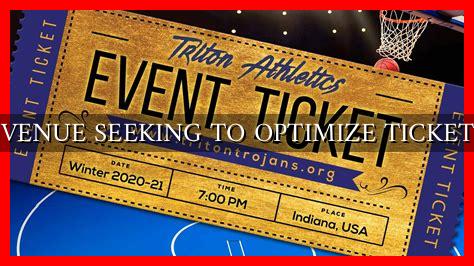-
Table of Contents
Optimizing Ticket Sales for Venues
When it comes to hosting events, maximizing ticket sales is crucial for the success of any venue. Whether it’s a concert, sports game, or theater performance, filling seats not only generates revenue but also creates a buzz around the event. In this article, we will explore strategies that venues can implement to optimize ticket sales and attract a larger audience.
Understanding Your Audience
Before diving into marketing tactics, it’s essential to understand your target audience. Conducting market research to identify the demographics, interests, and preferences of potential attendees can help tailor your promotional efforts effectively. For example, if your venue is hosting a music festival targeted towards millennials, you may want to focus on social media platforms like Instagram and TikTok to reach this audience.
Utilizing Data Analytics
Data analytics can provide valuable insights into customer behavior and preferences, allowing venues to make informed decisions when it comes to pricing, promotions, and event planning.
. By analyzing past ticket sales data, venues can identify trends, peak booking times, and popular seating preferences. This information can be used to optimize pricing strategies, create targeted marketing campaigns, and enhance the overall customer experience.
Implementing Dynamic Pricing
Dynamic pricing is a strategy that adjusts ticket prices based on demand, time of purchase, and other factors. By implementing dynamic pricing, venues can maximize revenue by capturing the willingness to pay of different customer segments. For example, offering early bird discounts for early bookings or premium pricing for VIP packages can incentivize customers to purchase tickets sooner and at a higher price point.
Creating Compelling Marketing Campaigns
Effective marketing campaigns are essential for driving ticket sales and generating buzz around an event. Utilize a mix of online and offline channels to reach a wider audience, including social media, email marketing, influencer partnerships, and traditional advertising. Engaging content such as teaser videos, behind-the-scenes footage, and interactive promotions can create excitement and encourage ticket purchases.
Enhancing the Customer Experience
Providing a seamless and enjoyable customer experience can significantly impact ticket sales and customer loyalty. From user-friendly ticketing platforms to personalized communication and on-site amenities, every touchpoint with the customer should be optimized for satisfaction. Offering perks such as early access, exclusive merchandise, and VIP experiences can also incentivize customers to purchase tickets and enhance their overall event experience.
Case Study: Madison Square Garden
One venue that has successfully optimized ticket sales is Madison Square Garden in New York City. By leveraging data analytics to understand customer preferences and behavior, implementing dynamic pricing strategies, and creating compelling marketing campaigns featuring top artists and sports teams, Madison Square Garden consistently sells out events and attracts a diverse audience.
Conclusion
Optimizing ticket sales for venues requires a strategic approach that combines data analytics, dynamic pricing, compelling marketing campaigns, and a focus on enhancing the customer experience. By understanding your audience, utilizing data-driven insights, and implementing effective strategies, venues can maximize ticket sales, drive revenue, and create memorable experiences for attendees.
Remember, the key to success lies in continuously analyzing performance metrics, adapting strategies based on customer feedback, and staying ahead of industry trends to remain competitive in the ever-evolving events landscape.





